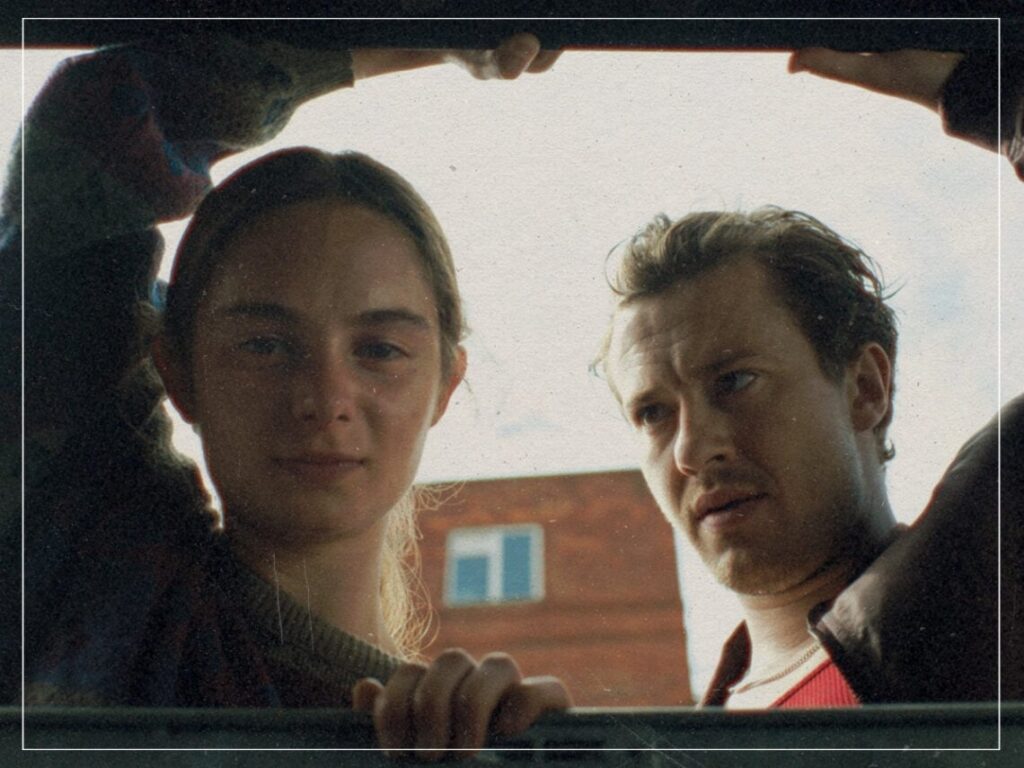‘Hoard’ movie review: a strikingly uncomfortable yet emotionally cluttered take on trauma
 Posted On
Posted On
(Credits: Far Out / Alpha Violet)
Luna Carmoon – ‘Hoard’
About halfway through Hoard, the rustling of snacks stopped. In her unfalteringly uncomfortable feature debut, Luna Carmoon approaches body horror with such dedication that it threatens to make your stomach churn. Pairing gross images with deeply uncomfortable emotions, the result is a visceral look at trauma at its most unpalatable.
The plot follows Maria, first meeting her as a seven-year-old child to a hoarder mother. Gradually, the idea is pieced together that her mother equates emotions with physical things: jars of collected chalk, orange peels, tinfoil balls, and bottles pulled out of bins. The piles of rancid junk in their home are called their “never-ending catalogue of love”, putting the child in a position where if she questions the mess, she’s questioning her mum’s affection for her. However, as the film suddenly jumps to her teenage years after an abrupt and confusing death that left members of the audience audibly yelling out, “What?” the story becomes just as cluttered as it is the subject matter.
On one hand, that feels incredibly powerful. When we meet Maria again as a teenager, and she begins descending into the condition that plagued her childhood, the levelling up in terms of confusion and uncleanliness feels like an evocative metaphor for trauma. As Maria begins gathering trash or falling back into the filthy play she’d engaged in as a child, she’s attempting to regather her lost mother’s love in her own taboo way.
The centring of disgust in the movie, in many ways, feels like a powerful move that forces the audience to stomach mental illness without even a dash of glamour. With its various unsettling dynamics and grotesque images that are spliced together with very little logic or explanation, Carmoon is daring to tackle the fact that PTSD is, in its nature, messy and often illogical, existing as a collection of random triggers or flashing memories rather than a linear and neat thing. Hoard feels like a messy, rotting pile of emotional shrapnel. But that’s exactly what trauma is. Or specifically, that’s exactly what Maria’s trauma is.
However, at every turn, Carmoon throws something else into the mix. The core story of grief and trauma is crowded to the point of confusion, as none of the emotional plotlines have enough space to breathe. As Joseph Quinn’s character of Michael enters the story, it feels like there isn’t enough room to explain who he is properly. So, while the scenes of Michael and Maria are gripping thanks to the excellent performances by Quinn and Saura Lightfoot-Leon, it’s hard to tell whether the audience is leaning in because it’s good or because they’re simply desperate for some level of explanation. Without adequate context of Michael’s position in Maria’s world or how he seems to know about her childhood, their relationship doesn’t seem to go much deeper than simply being a vehicle for a series of wild scenes it’s impossible to turn away from.
In that way, Hoard doesn’t feel very well written. But visually, it stays with you. The audience in the screening was vocally reacting in a way that it’s rare to manage with any traditional horror or drama. Carmoon has created a body horror that is genuinely shocking with moments that will send the tribe of people who thought Saltburn was disturbing into a spiral ten times deeper. They’re eating people’s ashes, pouring popping candy into opening wounds, falling into rotted animal corpses or having food fights that, while sexually charged, are still shot with a clear dedication to being disgusting. As Maria’s state gets worse, it’s like the stench radiates out of the screen.
Even as the plot reaches a limp finale with an oddly neat and clean happy ending, the gore of the film is so captivatingly grotesque that it leaves an impression that lingers. It makes your stomach churn or makes you want to run home and shower. As Carmoon voids her bodily images of any real seduction to use the tropes instead to tackle mental health in a way devoid of any romanticism, it’s like she’s rooting around in the guts of PTSD and forcing you to look at the mess in her hand.
All in all, Hoard is utterly striking in its deep discomfort and willingness to embrace just how disgusting trauma can get. However, its effectiveness relies entirely on the viewer’s fascination with the grotesque, while the emotional life of the film lies in disarray with a confused and cluttered plot.
[embedded content]


